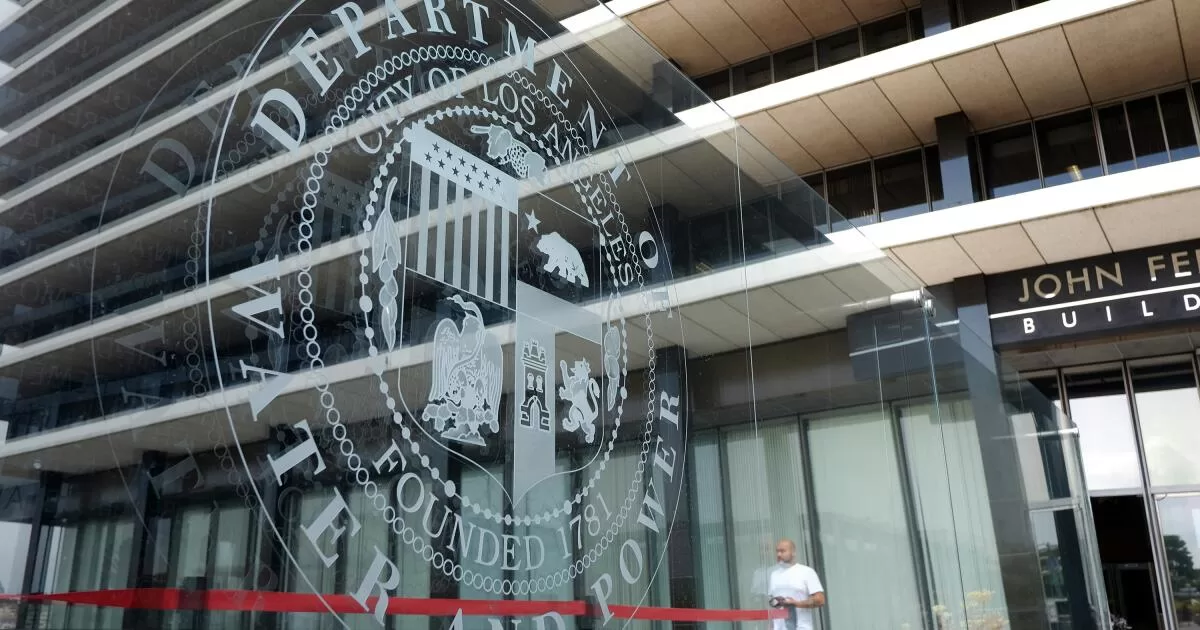U.S. District Judge George H. Wu denied a motion by former Chief Deputy City Atty. Jim Clark to dismiss a federal lawsuit brought by DWP customer Dennis Bradshaw.
Bradshaw is suing Clark and more than a dozen other attorneys over their handling of a separate lawsuit stemming from DWP billing overcharges, alleging his due processes were violated. Clark and the other attorneys named in Bradshaw’s lawsuit, which include onetime City Atty. Mike Feuer, have denied wrongdoing.
Bradshaw’s lawsuit stems from a class-action lawsuit filed by DWP customers over a billing system rolled out in 2013, a scandal that launched a federal criminal investigation.
Customers were flooded with outrageously inflated bills caused by the billing system, including a Van Nuys couple charged nearly $52,000. Several lawsuits were filed by customers.
Federal prosecutors described in charging documents how attorneys working for Feuer crafted a sham lawsuit in an effort to stop the lawsuits. The sham lawsuit was created so the city could quickly enter into a settlement with a friendly opposing attorney in an effort to settle all the claims brought over the faulty bills, according to prosecutors.
Federal prosecutors never named or charged the city attorney personnel who they allege ordered the collusive lawsuit. The U.S. attorney’s office announced last year that it has ended its investigation into the billing scandal.
Bradshaw’s lawsuit alleges that at a February 2015 meeting, Clark authorized Paul Paradis and Paul Kiesel, two attorneys working for the city, to find a “friendly” attorney to bring lawsuit against the city. The friendly attorney was Jack Landskroner of Ohio, according to Bradshaw’s lawsuit.
The lawsuit also alleges that Clark ordered Paradis to create a data-mining team composed of city attorneys and DWP personnel. The purpose of this team was to compile a list of the damage suffered by customers, information that would later be used by Landskroner in his settlement demand letter to the city, according to the lawsuit.
Clark also met with Paradis so Clark “could review and discuss the draft” of a settlement letter. The point of the meeting, according to the lawsuit, was so Clark could sign off on the letter, which Paradis would then provide to Landskroner, who would in turn send it to the city.
Clark sought to dismiss the lawsuit on the grounds that Bradshaw’s attorneys didn’t provide sufficient facts to show Clark’s alleged involvement in the collusive scheme.
Get the lowdown on L.A. politics
Sign up for our L.A. City Hall newsletter to get weekly insights, scoops and analysis.
You may occasionally receive promotional content from the Los Angeles Times.
Wu disagreed in his tentative decision issued last week.
“While certain individual allegations (such as that Clark participated in the data mining project), when considered in isolation, might be consistent with other explanations, Plaintiff’s allegations taken as a whole are sufficient for the Court to infer Clark’s participation in the scheme,” Wu wrote.
Clark’s attorneys weren’t present at Monday’s hearing and didn’t immediately respond to a request for comment about the judge’s ruling. “The notion that Mr. Clark had knowledge of or authorized [the lawsuit] scheme has repeatedly been discredited and is a complete fabrication,” Marisol Mork, Clark’s attorney, previously told The Times.
Filippo Marchino, an attorney for Bradshaw, said Wu’s ruling was significant. “We think the judge sees the facts,” Marchino said.
Paradis, the former attorney for the city, is serving a nearly three-year prison sentence for accepting a kickback related to the sham lawsuit.
